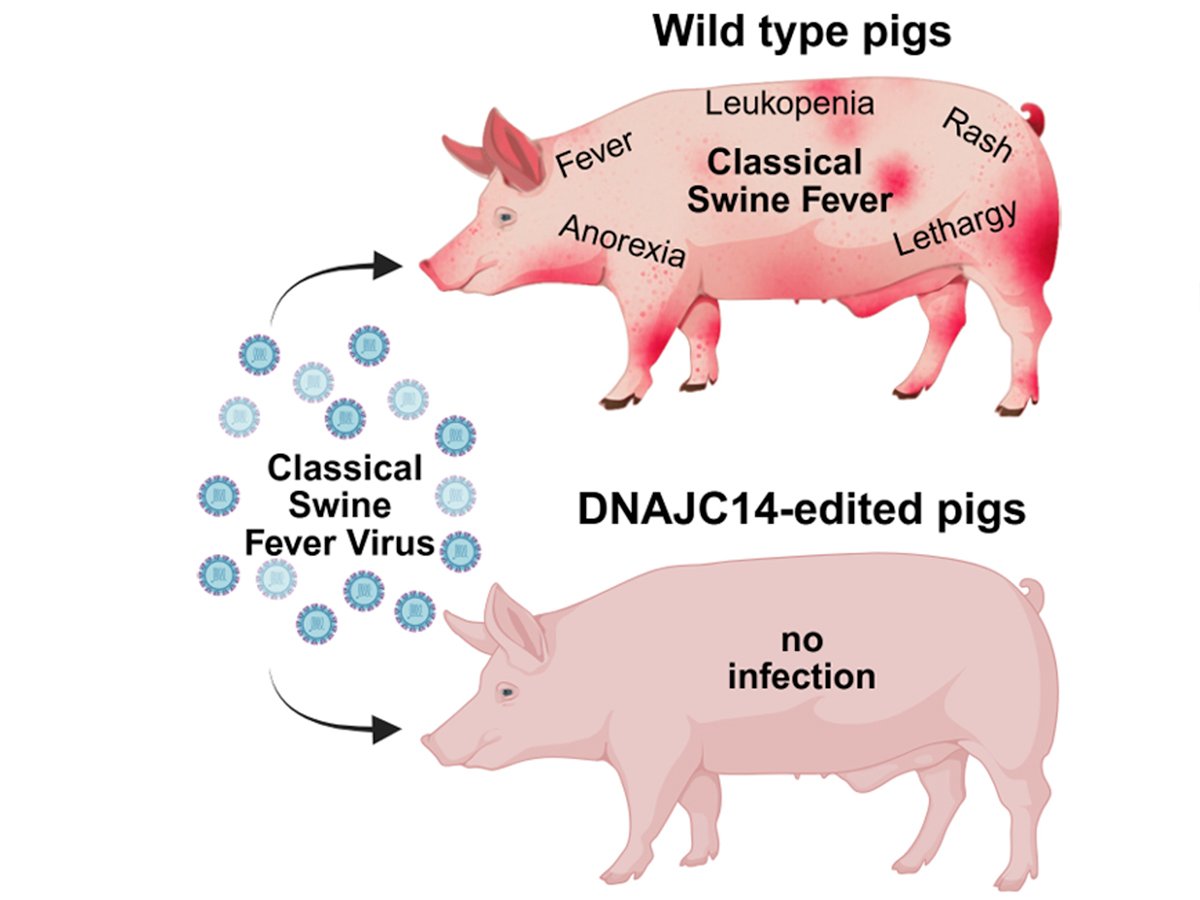There was a time in the mid-1990s when Jack Wilkinson wondered if the Canadian farm lobby was falling apart – marginalized, ignored by government and struggling for relevance.
The federal Liberals had just brought in the most dramatic budget in modern Canadian history. Government support for agriculture had been slashed by more than half and a regime of cost recovery fees had been launched.
Farmer objections were all but lost among the outcry from other groups gored by the federal deficit-cutting ox.
“I felt pretty irrelevant,” says the then president of the Canadian Federation of Agriculture. “The budget was cut, the world seemed to be unravelling, farmers were under stress.”
Read Also

Gene edited pig resistant to classical swine fever
British scientists have discovered a gene edit that could provide resistance to classical swine fever in pigs and Bovine Viral Diarrhea in cattle
Wilkinson, six years the CFA president and now president of the International Federation of Agricultural Producers, recalls a conversation he had with agriculture minister Ralph Goodale at the time.
“I remember telling him ‘I can’t stop you. Someday we will’,” he said.
And Wilkinson figures they did. By the time he left the CFA presidency in 1999, farmer pressure was beginning to convince government that cuts had been too deep and spending had to be replenished.
Wilkinson, 52, and owner of an 800 acre beef, grain and oilseed operation near New Liskeard in northern Ontario, recalls another time when the Canadian farm lobby stood tall.
The General Agreement on Tariffs and Trade talks were coming to a head in Geneva in late 1993 and supply management was under threat.
Tens of thousands of farmers gathered on Parliament Hill on a chilly autumn afternoon to demand that the system be preserved. Wilkinson is convinced that the show of force helped push the newly elected Liberals to win high tariff protections.
“I believe that we got the best deal that was possible and that was not a given,” Wilkinson said in an interview.
“We could have ended up with a real mess on our hands. I believe the farm lobby showed its strength and I think Mr. Goodale deserved a lot more credit than he got for securing the tariff levels he did.”
As Wilkinson reminisced about his close to two decades in Ontario, national and international farm politics, the IFAP president returned often to the changes in the farm economy and the farm community that have placed stress on the Canadian farm lobby.
The current Liberal government has all but ignored the demands from farm leaders to change and delay implementation of its agricultural policy framework. There are growing divisions in the farm voice and some traditional voices are fading or disappearing.
“These things ebb and flow and I know we’re at an ebb, but as I told Goodale, I believe we’ll be back.”
There is no hiding his discomfort at the demise of farmer-controlled marketing boards, co-operatives and communities.
But Wilkinson said his year travelling the world as IFAP president has given him some perspective on the strength of Canada’s farm lobby.
“I think the farm movement in Canada is still stronger than in any other country,” he said.
“It looks weak compared to some other times but compared to other countries, we still have access to leaders, our voice is heard, we have public support and I think we are farther up the totem pole.”
This comes from a man who has been one of Canada’s consummate farm politicians during the past two decades, charming when called for, abrasive when that seems the right tactic.
He was an air force pilot who retired at age 28 to go farming in southern Ontario.
Politics beckoned but after a few years, he and wife, Julie, decided to head north, expand and stick to farming.
“That lasted a year,” he said with a laugh. “Julie finally got tired of it. Every time I heard something on the news I didn’t like, I’d kick the dog.
“She finally told me to give the dog a break and get back into politics.”














